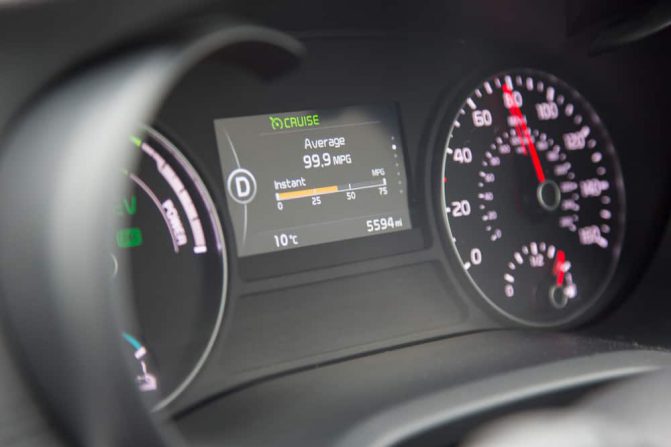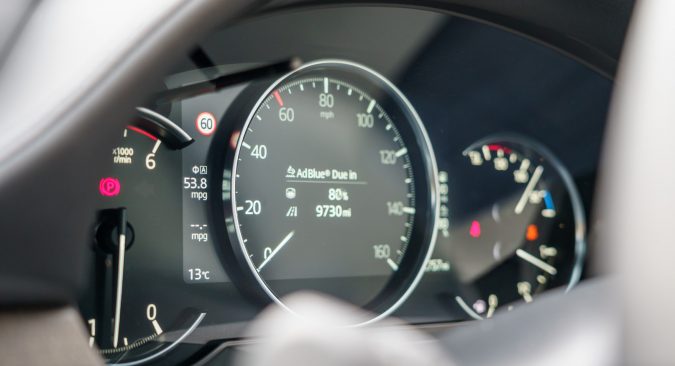As the automotive industry changes ever more, constantly evolving, so do rates of tax and how tax is calculated. That’s especially true for car tax bands 2023/2024, so be sure not to be left in the dark.
Car Tax Bands 2023 UK Explained
Understanding the ins and outs of car tax bands can be a headache. Take a look at this simple and very useful video to get your head around it all.
Get your car road tax status and an MOT history check free and instant. With any car registration number, you can also check SORN and import status and check if your car is registered on the Motor Insurance Bureau.
Used Car Road Tax Rate For 2023
Below is the VED band (road tax rates) for used cars registered after 1st March 2001 and before 1st April 2017.
| Band | CO2 (g/km) | 12 month |
| A | Up to 100 | £0 |
| B | 101-110 | £20 |
| C | 111-120 | £30 |
| D | 121-130 | £125 |
| E | 131-140 | £145 |
| F | 141-150 | £160 |
| G | 151-165 | £200 |
| H | 166-175 | £235 |
| I | 176-185 | £260 |
| J | 186-200 | £300 |
| K | 201-225 | £325 |
| L | 226-255 | £555 |
| M | Over 255 | £570 |
New Car Tax Bands 2023
First Year Tax Payment When You Register Your New Vehicle
Buying a brand new car from now on? You’ll be paying the first years tax based on the emissions of the car. Petrol cars have one price, diesel cars have another and alternative fuels have another. You should note, however, that diesel engines which meet the RDE2 standard will pay the same as the petrol cars, but not many do yet as the standard is aimed to be met in 2023.
| CO2 emissions | First Year rate |
Standard Rate |
|---|---|---|
| 0 g/km |
£0 |
£0 |
| 1 to 50 g/km | £10 | £165 |
| 51 to 75 g/km | £25 | £165 |
| 76 to 90 g/km | £120 | £165 |
| 91 to 100 g/km | £150 | £165 |
| 101 too 110 g/km | £170 | £165 |
| 111 to 130 g/km | £190 | £165 |
| 131 to 150 g/km | £230 | £165 |
| 151 to 170 g/km | £585 | £165 |
| 171 to 190 g/km | £945 | £165 |
| 191 to 225 g/km | £1,420 | £165 |
| 226 to 255 g/km | £2,015 | £165 |
| Over 255 g/km | £2,365 | £165 |
Year 2 Onwards Tax Rates Below £40,000
From the second year onwards, the vehicle is taxed one of three standard rates and will apply for cars under £40,000 when originally registered.
| Fuel type | Single 12 month payment |
| Petrol or diesel | £145 |
| Electric | £0 |
| Alternative | £135 |
If the vehicle was priced over £40,000 when registered, then you will be paying a premium of £310 for 5 years from the second time the vehicle is taxed. After the 5 year period ends, you will then pay the standard rate that applies for your vehicle.
Year 2 Onwards Tax Rates Above £40,000+
| Fuel Type | 12-Months | 6-Months |
| Petrol or Diesel | £450 | £247.50 |
| Electric | £310 | £170.50 |
| Alternative | £440 | £242 |
Fuel Type Definitions
Petrol – Vehicles that run only on petrol fuel, for example a Ford Fiesta with a 1.0-litre petrol engine.
Diesel – Vehicles that run only on diesel fuel, for example a Volkswagen Golf with a 2.0-litre diesel engine.
Electric – Vehicles that run motors on battery-stored electricity, for example an electric Nissan Leaf.
Alternative Fuel – Vehicles that include hybrids, bioethanol and liquid petroleum gas (LPG). An example of a vehicle running on Alternative Fuel is the Mitsubishi Outlander Hybrid, using a combination of a 2.0-litre petrol engine and electric motors.
VED / Car Tax Is on The Rise, Being Hiked In Line With Inflation
As of 2018, VED (that’s Vehicle Excise Duty, or car tax) will rise, or fall, in line with inflation, signalling a major change in car tax bands 2023. These changes only affect the tax for the first year, based on CO2 emissions. After that, however, motorists can expect to pay a flat rate from year two onwards. Surcharges based on CO2 emissions are in effect for the first year only.
Owning A Diesel Becomes Ever More Expensive
Owning a diesel will cost you more in road tax from 2023/2024 than it will for a petrol engine. Even if the diesel engine emits the same or less emissions as its petrol alternative.
The Volkswagen Golf GTD diesel hatchback emits 125g/km of CO2, and registering that car after the 1st April 2018 will cost £205. The petrol Golf GTI has the same cost, despite churning out 23g/km of CO2 more than its diesel counterpart.
The Real Driving Emissions Stage 2 Test (RDE2)
The news certainly isn’t all bad, with the Chancellor announcing that any diesel cars which pass the Real Driving Emissions Stage 2 (RDE2) test won’t be subject to the additional first-year VED surcharge and will cost roughly the same as a petrol model.
These RDE2 changes are set to come in to force in 2023, though as of yet there are no cars which meet the criteria and pass the test. Only time will tell how well this test works in cutting emissions and saving taxpayers money.
Does Your New Car Cost Over £40,000?
That’s right, even if your car emits absolutely zero emissions, if it costs over £40,000 you will end up with an annual surcharge between years two and six. A surcharge of £310 yearly, on top of your standard rate, no matter what car tax band your vehicle falls under. If this seems absolutely bonkers to you, there is a method to the madness. It’s the same principle as income tax: the more you earn the more you pay into the system. It’s a fair contribution.
The only way to get away with paying nothing in car tax 2023/2024 is if you register a zero-emission model costing under £40,000. Take the Hyundai Kona Electric as an example.
We would recommend a quick check with the DVLA to see if your car is currently taxed. You can find out how here.
If you have a classic car that is older than 40 years old it will no longer require road tax to be paid.
There is a wide selection of tax-free cars in the UK. Here are some examples:
Mitsubishi Outlander PHEV
Toyota Yaris 1.5 Hybrid
Ford Fiesta 1.0 Ecoboost
Alfa Romeo Mito 0.9 Tb Twinair
Kia Picanto
We have a list of cars that are low cost to run here.
1) Dacia Sandero (Access Trim)
2) Suzuki Celerio (SZ2 Trim)
3) Dacia Logan MCV (Access Trim)
4) Skoda Citigo (S Trim Three-Door)
5) Hyundai i10 (S Trim)




Beneficial information about vehicle tax details.